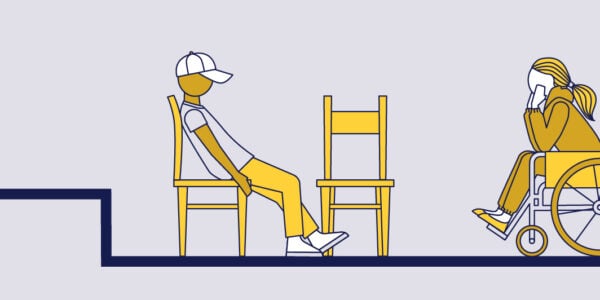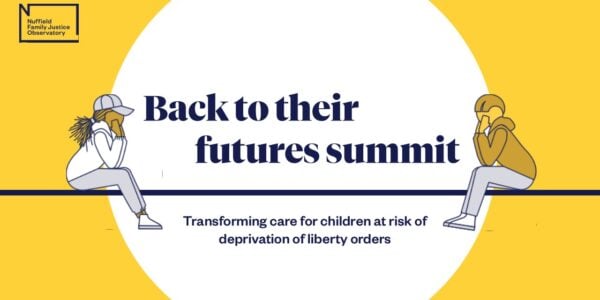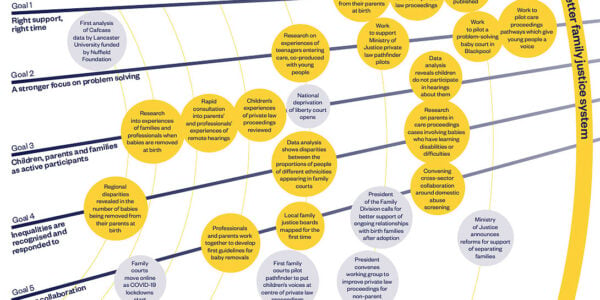This week the Independent Review of Children’s Social Care published its final report, setting out its recommendations to ‘reset children’s social care’.
There is little doubt that the system needs something of a reset; too often there is insufficient support to help families resolve their problems before they reach the family court. Despite the best efforts of dedicated and hardworking professionals, it can be easier to initiate proceedings than secure the intensive support that parents need to resolve their long-standing difficulties, whether for their mental health, addiction, poverty, trauma or family violence. We have ended up with a children’s social care system with a strong gravitational pull into the family courts. Something has to change.
Nuffield Family Justice Observatory’s director, Lisa Harker, has been a member of the Independent Review of Children’s Social Care Evidence Group – which brought together a range of research perspectives and expertise in children’s social care to ensure the review’s approach was evidence-informed. The Nuffield FJO team also supported the review team throughout its work by providing access to evidence, good practice and insight.
The final report is stuffed full of recommendations. Some will be popular, others divide opinion. Very few recommendations will take flight without government commitment and resources. The coming months will require ideas to be turned into realistic propositions.
But several themes in the report stand out as vitally important: provide earlier support to families before problems become entrenched; try harder to keep children within their own families if at all possible; commit to supporting children in care for life, and listen to and co-design services with those who have lived experience of children’s social care.
And for the family justice system in particular, some important messages. Children and families should not be in proceedings unless every effort has been made to resolve their difficulties; adopt a problem-solving approach where possible; make more use of the multi-disciplinary forums that are Local Family Justice Boards, and use data to understand the impact on children and families of decisions that are made in the courts.
Nuffield Family Justice Observatory exists to improve the lives of children and families by putting data and evidence at the heart of the family justice system. We find and fill the gaps in our understanding of the system, highlight the areas where change will have the biggest impact, and foster collaboration to make that change happen.
Over the next five years Nuffield Family Justice Observatory will be focusing on five goals, each echoed in the recommendations of the Independent Review of Children’s Social Care. We will continue to champion the availability of timely, national data to help shed light on family needs and circumstances, how services respond across England and Wales, and the long-term outcomes for the children and families involved.
Above all, we will continue to work with and alongside others in the spirit of partnership – engaging with curiosity, mutual respect and a recognition of both what we bring and what we gain – in order to gain new insights, allow ourselves to be challenged by a range of views and perspectives, and find new approaches to achieving positive change for children and families.









